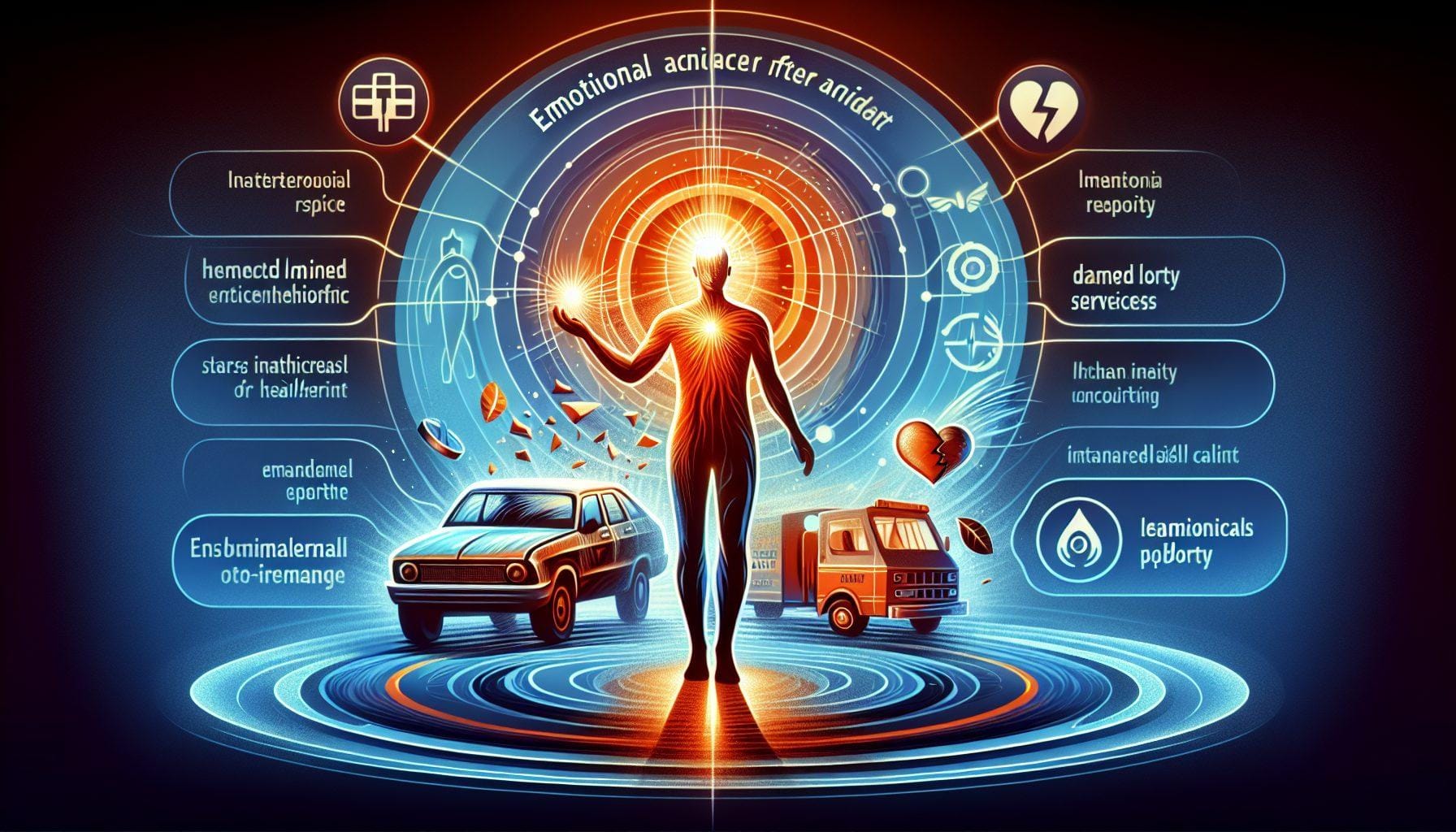Car accidents can have a devastating impact on our lives, both physically and emotionally. The aftermath of a car accident can leave individuals dealing with a wide range of emotions, including fear, anxiety, and even post-traumatic stress disorder (PTSD). It is important to understand that emotional trauma after a car accident is normal and can affect anyone involved in the incident. In this article, we will explore how to effectively deal with emotional trauma and navigate the healing process.
Recognizing Emotional Trauma
After a car accident, it is crucial to recognize and acknowledge any emotional trauma you may be experiencing. Common symptoms of emotional trauma include:
- Flashbacks or nightmares about the accident
- Feeling on edge or hyper-alert
- Having trouble concentrating or sleeping
- Feeling irritable or easily startled
- Experiencing feelings of guilt or shame
- Feeling disconnected or numb
If you are experiencing any of these symptoms, it is essential to seek support and professional help. Reach out to a mental health professional who can guide you through the healing process.
Seeking Professional Help
Dealing with emotional trauma after a car accident can be overwhelming, and it is crucial not to face it alone. Seeking professional help is an important step in your healing journey. A therapist or counselor specializing in trauma can provide you with the necessary tools and support to navigate through your feelings and emotions.
In addition to therapy, consider consulting with a car accident chiropractor who can help address any physical injuries resulting from the accident. Chiropractic care focuses on the alignment of the musculoskeletal system, helping alleviate pain and promote overall healing.
Chiropractors can provide manual adjustments, therapeutic exercises, and other forms of treatment to help restore balance in your body and alleviate any physical symptoms that may be amplifying your emotional trauma.
Self-Care Practices
Taking care of yourself is crucial during the healing process. Here are some self-care practices that can help you cope with emotional trauma:
- Practice deep breathing exercises or meditation to relieve anxiety and stress.
- Engage in regular physical activity, such as yoga or walking, to release tension and boost your mood.
- Ensure you get enough restful sleep to promote overall well-being.
- Surround yourself with supportive and understanding loved ones who can offer a listening ear.
- Engage in activities that bring you joy and help distract from negative thoughts.
- Consider joining a support group with other individuals who have experienced similar traumas.
Remember to be patient and kind to yourself. Healing takes time, and it is essential to prioritize your well-being throughout the process.
Managing Triggers
Triggers are stimuli or reminders that can bring back vivid memories or emotions from the car accident. Learning to manage triggers is a crucial step in your healing journey. Here are some strategies to help you cope:
- Avoid situations or places that trigger your emotional trauma whenever possible.
- Practice grounding techniques, such as deep breathing or focusing on the present moment, to help center yourself during trigger moments.
- Consider seeking exposure therapy, a treatment method that gradually exposes you to your triggers in a safe and controlled environment.
- Develop a toolbox of coping mechanisms, such as journaling, drawing, or listening to music, that you can use when triggers arise.
Building Resilience
Going through emotional trauma can be incredibly challenging, but it can also provide an opportunity for growth and resilience. Here are some ways to build resilience:
- Practice self-compassion and self-care.
- Set realistic goals and celebrate small victories along the way.
- Seek support from loved ones or join a support group.
- Engage in activities that promote relaxation and stress reduction, such as meditation or mindfulness.
- Challenge negative thoughts and reframe them in a more positive and realistic light.
- Focus on your strengths and practice gratitude for the things that are going well in your life.
Conclusion
Dealing with emotional trauma after a car accident is a complex journey that requires patience, self-care, and professional support. Remember that healing takes time, and it is essential to prioritize your mental and physical well-being. By seeking professional help, practicing self-care, managing triggers, and building resilience, you can navigate through the emotional trauma and emerge stronger on the other side.

